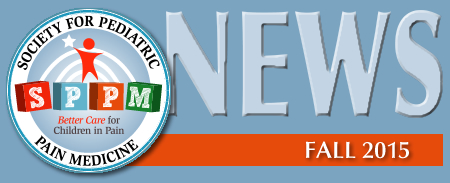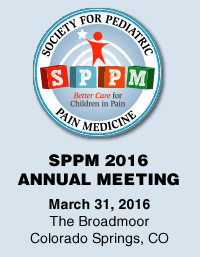Update from the AAAP: Development of the Providers Clinical Support Service-Opioid therapies--PCSS-O
By Rita Agarwal, MD, FAAP
Lucile Packard Hospital, Stanford University School of Medicine
In 2014, The American Academy of Addiction Psychiatry (AAAP) was awarded a $3 million grant from the Substance Abuse and Mental Health Services Administration (SAMHSA) to train healthcare professionals to use evidence- based practices in treating opioid dependence. The three-year project, entitled The Providers' Clinical Support System—Opioid Therapies (PCSS-O), began in September 2014. The AAAP partnered with several other national organizations including the American Academy of Pediatrics (AAP- one less A) and the American Medical Association (AMA).
The lead organization on this effort from the AAP was the Committee on Substance Abuse headed by Drs. Pamela Gonzalez and Sharon Levy. I was nominated to work with the AAP Committee on Substance Abuse when a representative from the Section of Anesthesiology and Pain Management (SOA) was requested.
The goal of the grant is to create educational materials for Primary Care physicians on the broad topics of appropriate use of opioids and prevention, early intervention and treatment of substance abuse disorder in pediatrics. The plan is to develop a series of two webinars per year, for three years, covering a wide variety of material. Each webinar will be 40-50 minutes in duration, with time for question and answers and will also be followed approximately one week later with time for additional questions and answers.
Deciding on a curriculum and winnowing in on the most important aspects of pain management and prevention of substance misuse/abuse problems was a challenge. Several phone conferences and e-mail discussions later, a robust outline was created. Speakers were sought and found (some of you may recall my pleas for help) and the first two webinars have been developed. Drs. Genevieve D’Souza and Brenda Golianu (Stanford University Medical Center) presented the first Webinar on July 2, 2015 titled “Unraveling the Mystery of Acute and Chronic Pain in Children and Adolescents.” This webinar was extremely well received with over 100 registrants. The second Webinar titled “Putting the Pieces Together” was presented on August 6th by Drs. Brenda Golianu and Cora Breuner as the speakers. This was also very well attended and received.
The next few topics are in the development stages and will be refined based on feedback from Webinars 1 and 2. Their focus will be on adequate pain management and prevention strategies, as well as screening, risk factors and co-existing disease. Speakers will be sought from a range of pediatricians and pediatric subspecialties with an interest in addiction medicine, pain management and psychiatry.
In the meantime, the AMA under the guidance of Barry Dickinson, Director of Science & Biotechnology and the Secretary, Council on Science & Public Health at the AMA, is working on a similar project. I was once again nominated (no-one else from the original AAP Steering Committee wanted to do it) to be the AAP representative to their Expert Panel on Pain Management. The AMA is approaching the project slightly differently and wants to create web-based, interactive content that will provide 3-4 CME credits for the PCSS-O. A group of experts from several national organizations was convened on July 10th to review ideas and materials. There were representatives from the American College of Physicians, the American Psychiatry Association, American Association of Neurologists, American Osteopathic Association, American Society of Anesthesiologists, American Academy of Pain Medicine, American Academy of Family Physicians, American Congress of Obstetricians and Gynecologists, American College of Occupational and Environmental Medicine, American Society of Addiction Medicine, American Academy of Addiction Psychiatry, American Academy of Hospice and Palliative Care and the American Academy of Physical Medicine and Rehabilitation. At that meeting, a preliminary framing document was created and reviewed. However, there still remains a large body of work to be accomplished on both of these efforts.
Although I am very interested in and am knowledgeable about pain management, I am certainly not the expert that many of you are. My experience is with education, CME and putting together national educational conferences. I am also good at organizing and follow up (some may call it nagging), so if you are interested in being involved, (and don’t mind my nagging) please let me know and I will try to get you involved.
If you have any questions related to these projects please feel free to direct them to me at [email protected].

